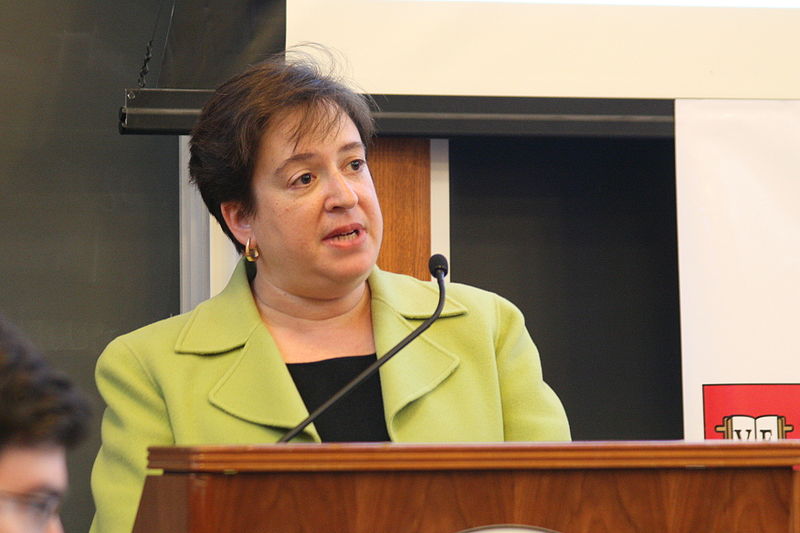America and Greece have lately been running large budget deficits, roughly comparable as a percentage of G.D.P., notes Paul Krugman. Yet markets treat the countries very differently.
All Articles
“Every generation is born to this same anatomical legacy; how they then fashion it with clothing is, in miniature, the story of culture,” argues Susan J. Vincent in her sweeping […]
Octopus and hidden cameras go together like chocolate and peanut butter. You never know what those crazy cephalopods will get up to. Today, Boing Boing dug up some neat old […]
Heat death is a deceptive name. As Michio Kaku explains, entropy doesn’t necessarily refer to dramatic destruction; it’s more about how stuff just tends to fall apart.
New statistical analysis finds that all life on Earth shares a single common ancestor, confirming a “central pillar of evolutionary theory.”
Vast quantities of dispersant chemicals have been sprayed into the oil slick in the Gulf of Mexico to reduce environmental damage. But there’s little knowledge about their possible impact.
“Millions of workers who have already been unemployed for months, if not years, will most likely remain that way even as the overall job market continues to improve,” writes Catherine Rampell.
Could business executives learn from the test that London taxi drivers take? Stephen Adshead writes that the process teaches conflict management and the benefit of humility.
“The government’s current policy to leave a great deal of its liabilities off-balance sheet makes the U.S.’s current debt levels look a lot more favorable than they really are,” writes Daniel Indiviglio.
The tea party movement has become “an insta-network for ambitious women,” writes Hanna Rosin. “Some would surprise you with their straightforward feminist rage.”
Western-style Holocaust denial—the attempt to produce pseudo-scientific proofs that the Jewish genocide did not happen—is not that common in the Arab world, writes Gilbert Achcar.
“Nowadays a specimen of unkempt, puffed-up prose or stumbling, lugubrious verse doesn’t even need to make it past an editor or publisher to glide slimily” into our awareness, writes Laura Miller.
New research into the brain provides intriguing information about the neural activity associated with moments of sudden insight.
“The world remains inexplicably indifferent and uncurious” about the deadly nature of Communism, writes Claire Berlinski. “For evidence of this indifference, consider the unread Soviet archives.”
So what are we to make of the new British coalition Government that made its appearance, in the shape of David Cameron and Nick Clegg, in the 10 Downing Street […]
Sick of hearing about a slow-moving sheet of oil floating about in the middle of the Gulf of Mexico? You may not be alone. According to The New Republic‘s Bradford […]
Elena Kagan’s friends assure us that she’s not gay. “I’ve known her for most of her adult life and I know she’s straight,” Kagan’s roommate in law school told Politico. […]
Ever since Niall Ferguson was a boy, and still to this day, the Harvard historian says he has looked to the BBC’s Dr. Who as his superhero role model. Why? […]
The relationship between literary talent and literary fame is not so interesting to discuss (being so much discussed, and yet being uniquely subjective). Why should we care if the writers […]
How connecting cutting-edge technologies with the people who need them the most is revolutionizing the traditional aid model and empowering communities to take charge of their own well-being.
Long before reality television challenged our faith in the sustainability of the human race, documentary films were an intriguing look into the minds and hearts of some fascinating subjects. By […]
“Where is everybody?” the physicist Enrico Fermi once famously asked, disappointed that aliens hadn’t contacted us yet. Over 50 years later, Fermi would feel even more snubbed. As Paul Davies […]
“Instead of creating a joint military, Europe must now be worried about keeping its common currency. Europe could end where it began: in Greece,” writes writes Christoph Schwennicke.
A Japanese mathematician has come up with a cardboard model that seems to defy physics—creating what vision scientists are calling the best illusion of the year.
War-on-terror hawks may believe we must kill and intimidate people who have some nebulous terrorist intent. But Robert Wright is surprised that President Obama would entertain the notion.
In the wake of the housing bust, some squatters are doing so not for financial expediency, but because they reject the idea that homes be treated as commodities.
While in in the past we thought of the earth’s core as fairly homogeneous, it’s now clear that the solid center of the earth is an aggregation of crystals.
William Saletan argues that we shouldn’t ask Elena Kagan is she’s gay, and she needn’t volunteer an answer. Forced disclosure isn’t just a threat to the nomination, he writes, it’s a threat to freedom.
Walter Rodgers suggests the vocalized concerns of tea partiers about big government mask a fear among aging, white Americans of their own diminishing political power.
Sam Harris argued recently that “morality should be considered an undeveloped branch of science.” He talks about the backlash from people who believe it’s wrong to make moral judgments.










